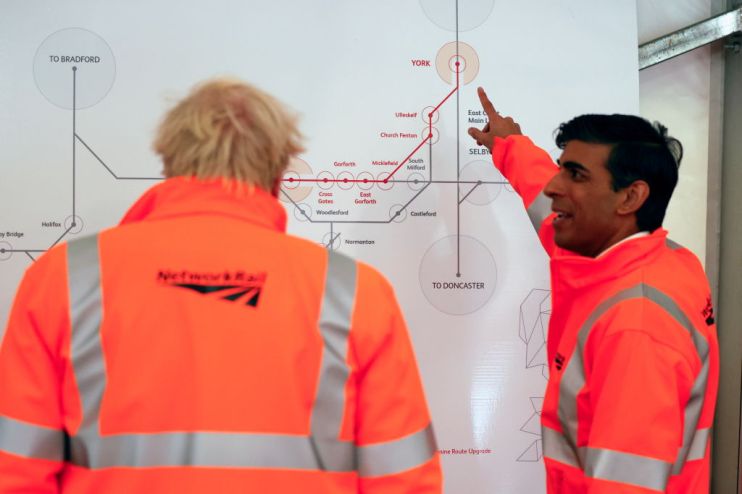This service has been delayed: A railway revolution is at a crossroads

It was back in May when Grant Shapps, the one-time Tory chairman turned Transport Secretary, promised a revolution that would put passengers “at the heart” of everything to do with Britain’s railways.
Critics claim his revolution – that will hand control of the railways to a quango looking something like NHS England – is nationalisation by any other name.
Tories insist the shake-up is all about modernising a network creaking at the seams and notorious for charging passengers the kind of prices that would make airlines blush.
Just last week we had a reminder of the size of the task, when a freight operator switched back to diesel power ahead of the Government’s big Net Zero push. Others point out the current ticket system hasn’t changed since the 1990s, meaning an astonishing 55 million different fares are available today.
We’re about to see how serious Mr Shapps and the Department for Transport (DfT) really are about heralding in a new era.
Next week we’re due to get the Integrated Rail Review complete with details about plans to “level up” the country through new projects such as Northern Powerhouse Rail, TransPennine Rail and the northern legs of HS2.
Cynics suggest it may look more like “scaling back”.
There are big question marks at this late stage hanging over whether key links to cities such as Bradford and the eastern leg of HS2 to Leeds will actually get the go ahead.
But just as important is the battle that’s due to begin about cost on the existing network.
Last week, in a blink-and-you’d-miss-it announcement, the Rail Delivery Group – the body that represents train operators – set out a voluntary severance programme for thousands of staff on the railways.
It shattered an uneasy truce with the RMT Union who claimed it was a “serious breach of trust” after months of behind the scenes talks about Covid recovery. Some in the RMT spoke of the very real possibility of the first national strike on the railways for 20 years – a walkout that really would put the cherry on the cake of any Winter of Discontent.
Ministers argue that costs have to come down as the Treasury cannot keep pumping in money to keep operators afloat – it has spent £15bn subsidising rail in the pandemic so far – and because customers are staying away.
Worried DfT bods highlight that passenger volumes are just two-thirds of pre-Covid levels, and as little as 30 to 40 per cent on morning “rush hour” services as commuters take advantage of new flexible working opportunities to travel off-peak on cheaper fares.
It’s why you can expect the Government to trim the inflation-linked 5 per cent hike in rail fares due in the New Year.
“Even Rishi knows 5 per cent would be toxic,” one insider claims.
The problem for the Government is how it brings costs down in an industry notorious for trade union confrontation over the merest hint of change. (Remember the bitter row over conductors on Southern).
While almost every other industry is battling staff shortages, train operators have been charged with finding “efficiencies” and cutting back.
Insiders claim they have been told by Government paymasters to model a scenario where passenger volumes will at best only ever return to 80 per cent of their pre-Covid heights.
Some in the industry believe Boris Johnson is “spoiling for a fight” with the RMT and wants to break up the last trade union with some real nationwide muscle.
DfT insiders insist they don’t want a dust-up and are privately complimentary about RMT chief Mick Lynch, saying he gets the need for change.
But there’s a feeling that last week’s skirmish is the start of an almighty stand-off that will ultimately determine how quickly modernisation can take place.
Grant Shapps could well be a man on a mission but he’s likely to be tested like never before.
Don’t be surprised if his best laid plans are … delayed.